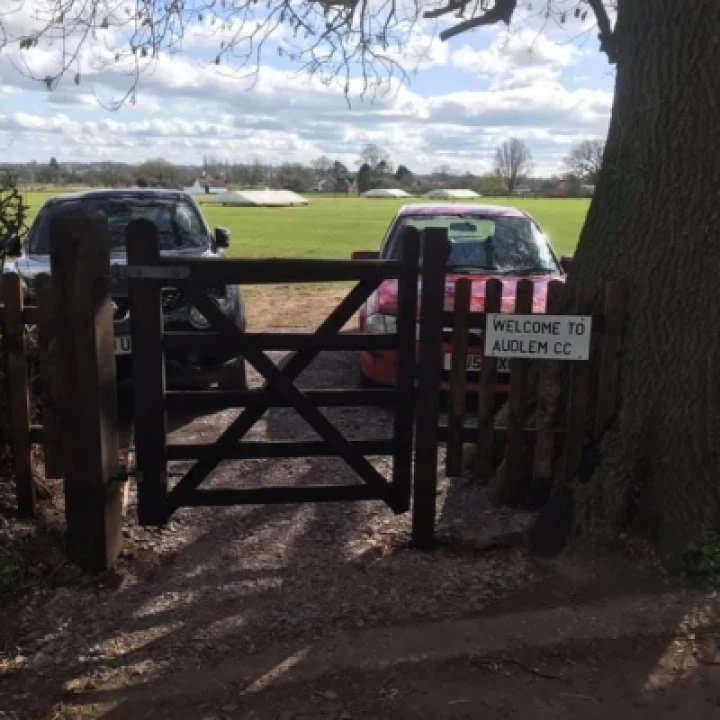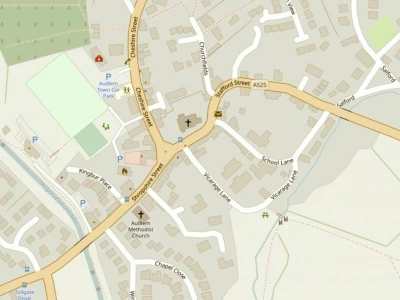







Following yesterday's story on the foul smell being experienced, particulary in the evenings and nights, in the Buerton area, AudlemOnline has received the following detailed information from a regular reader, Siteuser. It says:
I used to work in enforcement in the public sector and had considerable contact with local environmental health departments, although not in Cheshire. I built up considerable contacts and have spoken to one of my close friends who was a senior environmental health officer in another authority to get advice on the issue and what approach might be taken.
So the below is offered for the advice of those people suffering this problem in the Buerton locale. If you need to give any context for my advice you can simply tell them that I've been able to consult a close contact in a local authority elsewhere in the country.
1. This matter is not within the purview of the Environment Agency unless there is a
direct threat to a water course. Even if the Environment Agency were to be involved, they are brought in by the local Environmental Health Department. Any approach to the Environment Agency will in all likelihood simply lead to a referral back to the Local Authority.
2. – A strategy needs to be developed for dealing with the Local Authority. Following public sector cuts in recent years they are under severe pressure at the moment, in many cases resources have been reduced by 50% or more.
Many also have a moratorium on any "out of hours" work as they cannot afford the
overtime payments that this involves, thus in the first instance the local officer will resist any requests to attend out of hours.
However, intervening at the correct level of management within the local authority, and with a suitable weight of numbers will likely result in a change in a specific case. At present the likelihood is that complaints are being received at the lowest level and senior management are probably not even aware of what is going on. Officers are very overstretched and in many cases will attempt to kick an issue into the long grass out of sight of their superiors, especially if it's not an easy one to resolve.
However, the local authority have a duty to investigate under section 79 or 80 of the "The Environmental Protection Act 1990" and must ultimately respond.
3. The first piece of practical advice therefore is to find out the name of the Chief Environmental Health Officer (or person who is fulfilling those duties, as the post has been rolled into bigger roles in some authorities) and write directly to that named person.
Explain the difficulties that you are having, both with the issue itself and with the response from the local authority. Assert your expectation of a proper investigation, including attendance at the time when the problem routinely rears its head, if necessary with repeat visits.
4. If a direct approach to the chief officer fails to elicit a response, you should then approach your local councillor. I am assuming that this is Rachel Bailey, who helpfully is also a Cabinet member, I understand, and likely therefore to have more influence. Of course, elected members may wish to appear impartial and not appear to take sides. They may also be wary of the political clout of the agricultural industry in an area like this.
On the other hand, if enough people are seriously angry they will not want a body of unhappy voters. They will need to understand therefore that there is a large body of people who are not going to be fobbed off.
5. If that fails, you may wish to consider ramping up the political pressure by involving the local press. Local papers are hungry for any sort of copy especially where any sort of "outcry" appears to be occurring. If you can persuade a reporter to turn out, make sure that they come during a time when the stench is likely to be evident. Certainly politicians are very sensitive to reports in the media, and in particular anything which might leave them looking as though they are disregarding voters needs in favour of some business interest.
6. You will therefore need to get organised. Has anyone considered establishing a 'residents action group'? If the source of the nuisance is purely agricultural in origin then what is "acceptable" in an agricultural area is entirely subjective.
There is unsurprisingly no 'smellometer' which can give a black or white answer. However, you do not have to tolerate an excessive smell just because this is an agricultural area.
'Public nuisance' is defined as "an act, not warranted by law, materially affecting the
reasonable comfort of a class of Her Majesty's subjects who come within the sphere or neighbourhood of its operation".
The question of whether a local community can amount to a 'class' is a question of fact in every case; source; Statutory Nuisance- a Practical Guide By William Birtles and Members of Old Square Chambers Environmental Law Group.
Apparently to deal with the subjective nature of such a nuisance it is possible to convene what is called a 'smell panel'. You need to be able to assert that a sufficiently large number of people regard the odour as beyond acceptable in the neighbourhood context. Beware that the other side will likely be able to produce at least some people who will say that they find it acceptable and you need to be able to counter that.
7. Try to establish a dossier of evidence. Try to establish when the problem started and if it correlates to any change in processes at the farm in question (to my recollection this problem started some 18 months ago, although time plays tricks).
Do they have a proper slurry management system?
Are there activities other than slurry treatment which are taking place – e.g. carcass disposal (apparently not unknown)?
Whatever it is try, to get as much logically documented evidence together. The more coordinated and well argued your case, the greater your chance of success.
Also, what approaches have been made directly to the person causing the nuisance and what has been their response – authorities will want to know that you've taken as many reasonable steps as you can to try to resolve the issue first hand.
8. Finally, if all else fails with the local authority there is a provision in section 82 of the Environmental Protection Act for a person other than a formally appointed enforcement officer to lay a complaint before a magistrate. Local authorities will often not advise you of this.
A magistrate may well choose to visit the site, although of course if this is at an agreed time there is every likelihood that the causation will be temporarily suspended or cleaned up (this does in practice happen).
The advice I've received also indicates it's best to avoid involving a solicitor in such a process as they tend to try to deal with the issue with expensive protracted correspondence.
There is a host of information online on public nuisance. One good starting point is;
http://portal.nasstar.com/33/files/articles/Birtles_StatutoryNuisance.pdf
This article is from our news archive. As a result pictures or videos originally associated with it may have been removed and some of the content may no longer be accurate or relevant.
Get In Touch
AudlemOnline is powered by our active community.
Please send us your news and views using the button below:
Email: editor@audlem.org


